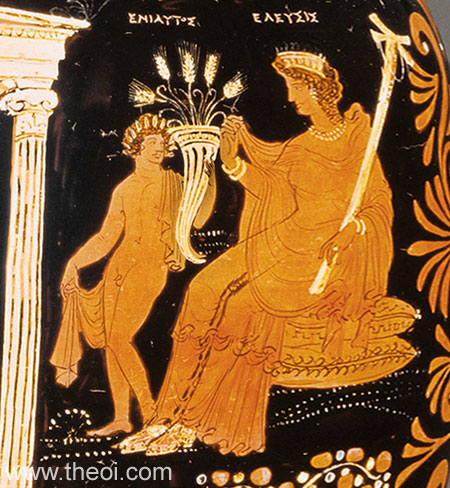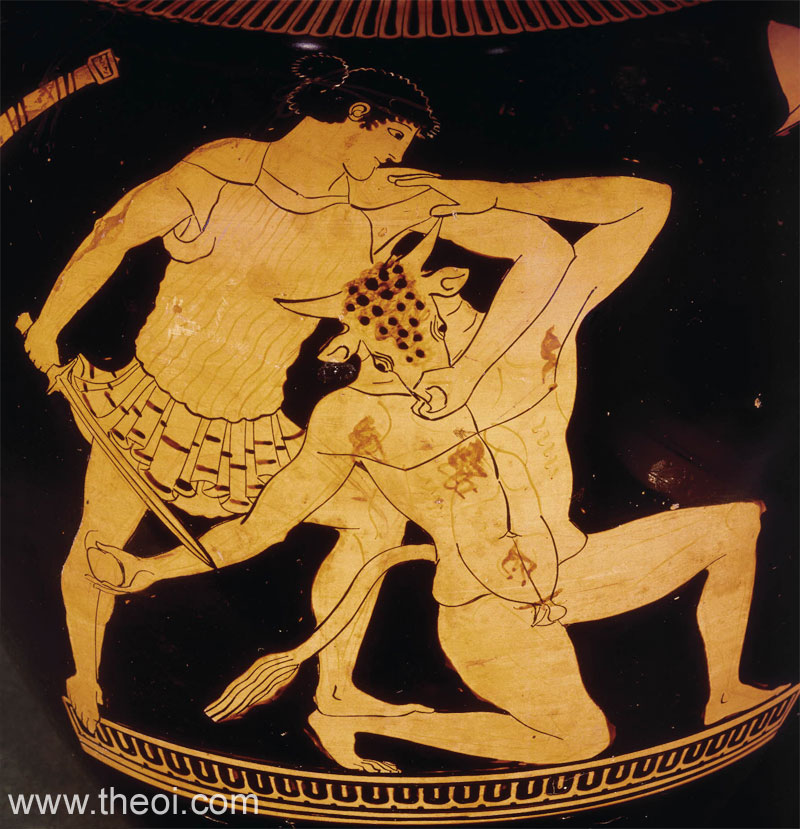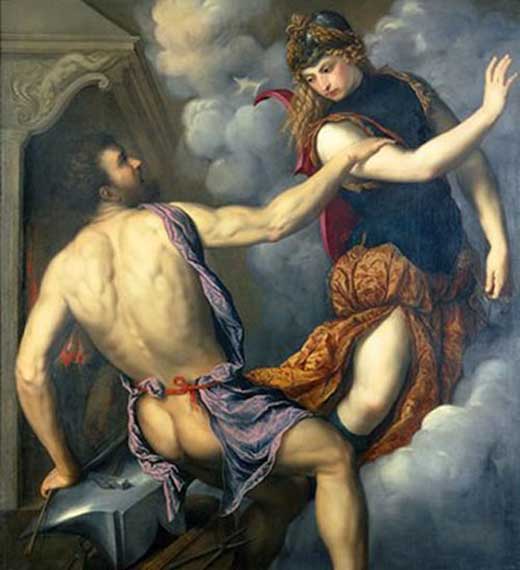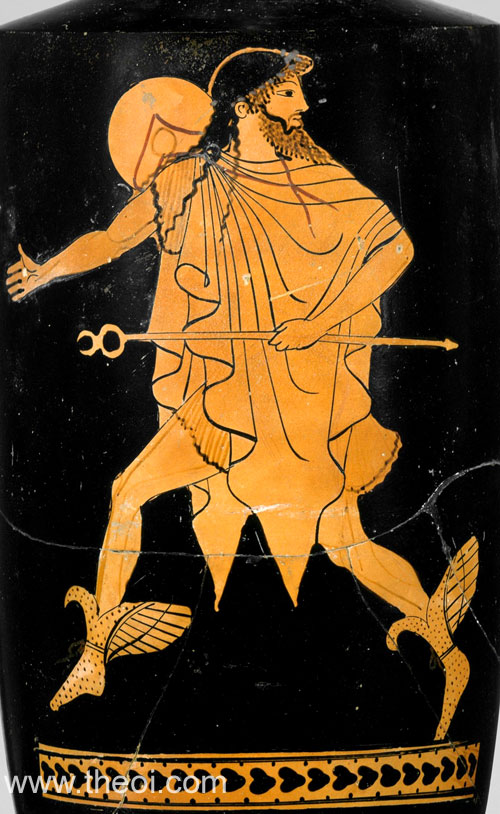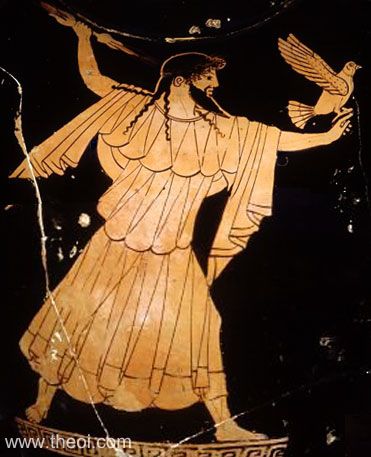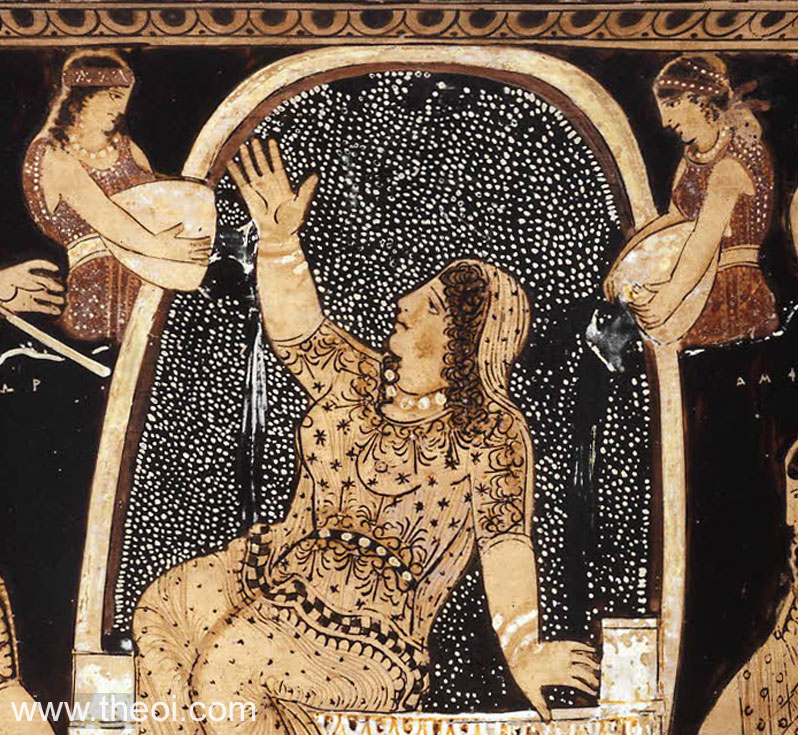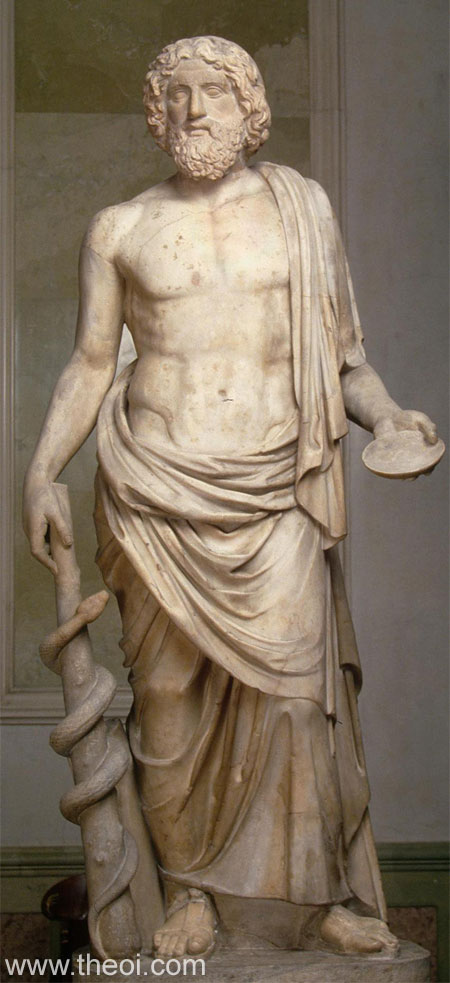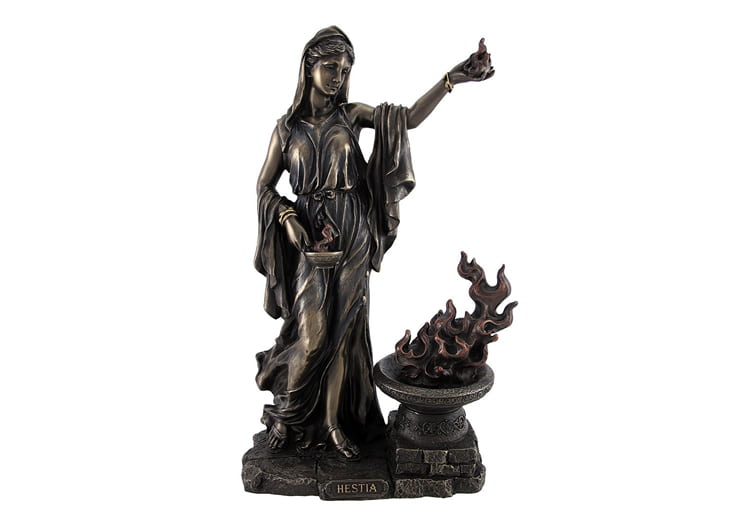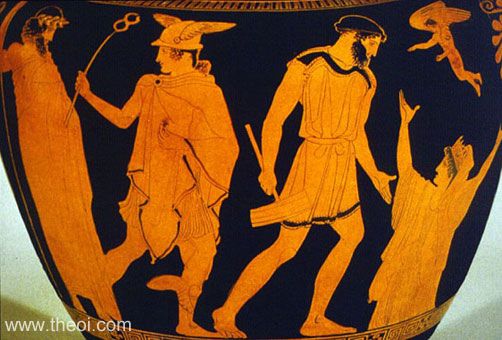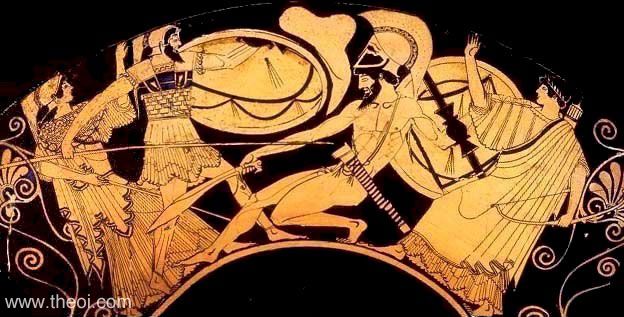If you don’t know who the Twelve Olympians are, the Twelve Olympians are the major deities that resided on Mount Olympus. It is important to know that some versions of Greek mythology have Hestia as the 12th Olympian, while other versions have Dionysus. We will include both Hestia and Dionysus in the first portion of our list, as well as Hades.
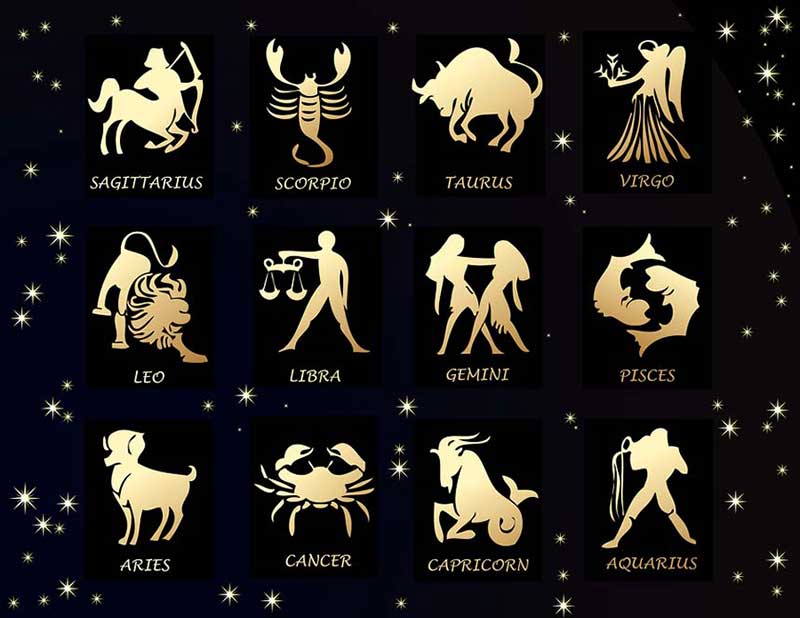 Symbols of the Twelve Olympians
Symbols of the Twelve Olympians
- Zeus (Greek god of the skies): lightning bolt/thunderbolt, eagle, swan, clouds, bull, and oak tree
Facts: Zeus would use a lightning bolt or thunderbolt to inflict pain or death upon his enemies. He would also transform into various creatures, such as an eagle, swan, or bull. The oak tree represents the great wisdom that Zeus possesses.
- Hermes (Greek god of trade, merchants, travelers, sports, and athletes): Caduceus (rod staff with snakes entwined), winged shoes, a winged hat, and tortoise shell
Facts: Hermes was the god of travel, so he was often related to transportation methods, such as winged shoes and a winged hat.
- Hera (Greek goddess of marriage, queen of the gods): diadem/crown, pomegranate, peacock, and cow
Facts: Hera was the queen of the gods and often was adorned with a diadem or crown. Her sacred animal was the peacock and cow.
- Hestia (Greek goddess of the hearth and home): hearth
Facts: Hestia was one of three virgin goddesses. She always kept the fire going at Mount Olympus, and food was always prepared in her name for her sacrifice.
- Dionysus (Greek god of wine and the vine): grapes, ivy, thyrsus of ivy and pine cone
Facts: Dionysus was considered an outsider to the Twelve Olympians because he had a mortal mother. Even though his father was Zeus, having a mortal mother made Dionysus feel separated from the rest.
- Poseidon (Greek god of the seas): trident
Facts: Poseidon plays a part in many Greek myths, including his relationship with Medusa and his anger with Odysseus.
- Aphrodite (Greek goddess of love, beauty, pleasure): golden apple, dove, swan, and scallop shell
Facts: Aphrodite could make people fall in love by wearing her sacred belt. Hera was among those who borrowed the belt.
- Hephaestus (Greek god of metalworking, blacksmithing, craftsmanship): Hammer, anvil, fire, donkey, and volcano
Facts: Hephaestus made all of the weapons and armor for Mount Olympus. A donkey is one of his symbols because he would ride a donkey instead of a chariot.
- Apollo (Greek god of healing, medicine, music, and poetry): Lyre (musical instrument), bow and arrow, python, a laurel wreath, and the sun
Facts: Hermes invented the Lyre but used it against Apollo when stealing his cattle. When Apollo noticed his cattle had been stolen, he confronted Hermes, who began playing music on the Lyre. Apollo, being the god of music, fell in love with the music on the Lyre and allowed Hermes to keep his cattle in exchange for the Lyre.
- Artemis (Greek goddess of animals and hunting): bow and arrow, deer, quiver, and the moon
Facts: Artemis accidentally killed her best friend, Orion, with a bow and arrow because Apollo made her believe that Orion was a villain who had raped one of her friends.
- Ares (Greek god of war): spear and helmet, armor, dog, chariot, torch, and vulture
Facts: Ares had two children, Phobos and Deimos, who represented fear and terror. They would often accompany Ares in war.
- Athena (Greek goddess of knowledge, wisdom, and civilization): owl, olives/olive tree, spear, aegis, and snakes/serpents
Facts: Modern-day Athens, Greece is named after Athena because of her close ties to the city and civilization.
- Demeter (Greek goddess of the harvest, agriculture, grain): grain, cornucopia, and bread
Facts: Demeter’s daughter Persephone, whom Hades was in love with, was captured by Hades and taken to the underworld. To get her back, Demeter sent upon the earth a great famine and vowed the famine would remain until Persephone was returned to her.
- Hades (Greek god of the underworld): helmet, bident/scepter, and the horn of plenty
Facts: Hades gave Persephone a pomegranate to eat while she was in the underworld. When she returned to her mother, Demeter, her mother asked if she had eaten anything from the underworld. When Persephone said yes, Demeter told her that she was now bound to Hades and the underworld. Zeus intervened and made a deal: Persephone would spend one-third of a year with Hades in the underworld as her debt for eating the fruit.
